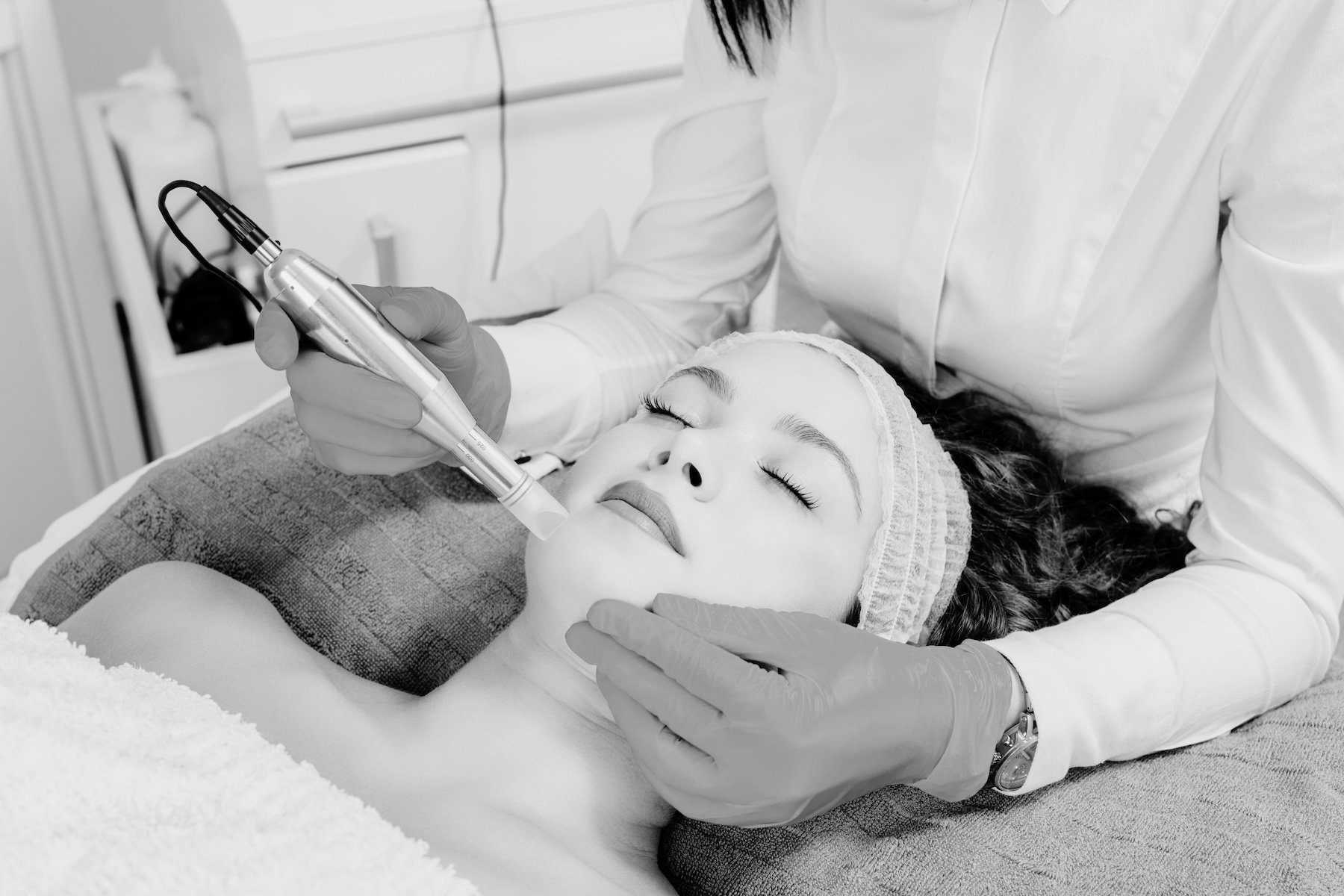Microneedling
What You Need to Know:
Microneedling is a non-invasive cosmetic procedure that stimulates collagen production by creating tiny punctures in the skin using fine needles. This process helps improve skin texture, reduce scars, and diminish fine lines and wrinkles. It's known for its effectiveness in rejuvenating the skin and promoting a smoother, more youthful appearance, all with minimal downtime and natural-looking results.
Who is Microneedling for?
Microneedling is for individuals looking to improve skin texture, reduce the appearance of scars (including acne scars), minimize fine lines and wrinkles, and enhance overall skin tone and firmness. It's suitable for most skin types and can benefit those seeking a non-invasive treatment to rejuvenate their skin and stimulate collagen production.
Microneedling FAQ
What should I expect during a microneedling treatment?
The treatment typically begins with the application of a topical numbing cream to minimize discomfort. The microneedling device is then moved across the skin, creating tiny punctures. The procedure usually takes about 30-60 minutes.
Is there any downtime after microneedling?
Downtime is minimal. You may experience redness, mild swelling, and a sunburn-like sensation for a few days. Most people can resume normal activities within 24-48 hours.
How many microneedling sessions are needed to see results?
Results vary, but most individuals see significant improvements after 3-6 sessions spaced about 4-6 weeks apart.
Are there any side effects of microneedling?
Common side effects include redness, swelling, and mild irritation, which usually subside within a few days. Rare side effects can include infection or prolonged redness.
Can microneedling be combined with other treatments?
Yes, microneedling can be combined with other treatments such as chemical peels, PRP (platelet-rich plasma), or topical serums to enhance results.
How long does it take to see results from microneedling?
Visible improvements can be seen within a few weeks after the first session, with continued improvements over the next few months as collagen production increases.
Who should avoid microneedling?
Individuals with active skin infections, open wounds, or certain skin conditions like eczema or psoriasis should avoid microneedling. Pregnant or breastfeeding women and those with a history of keloid scars should also consult with a healthcare professional before undergoing treatment.

